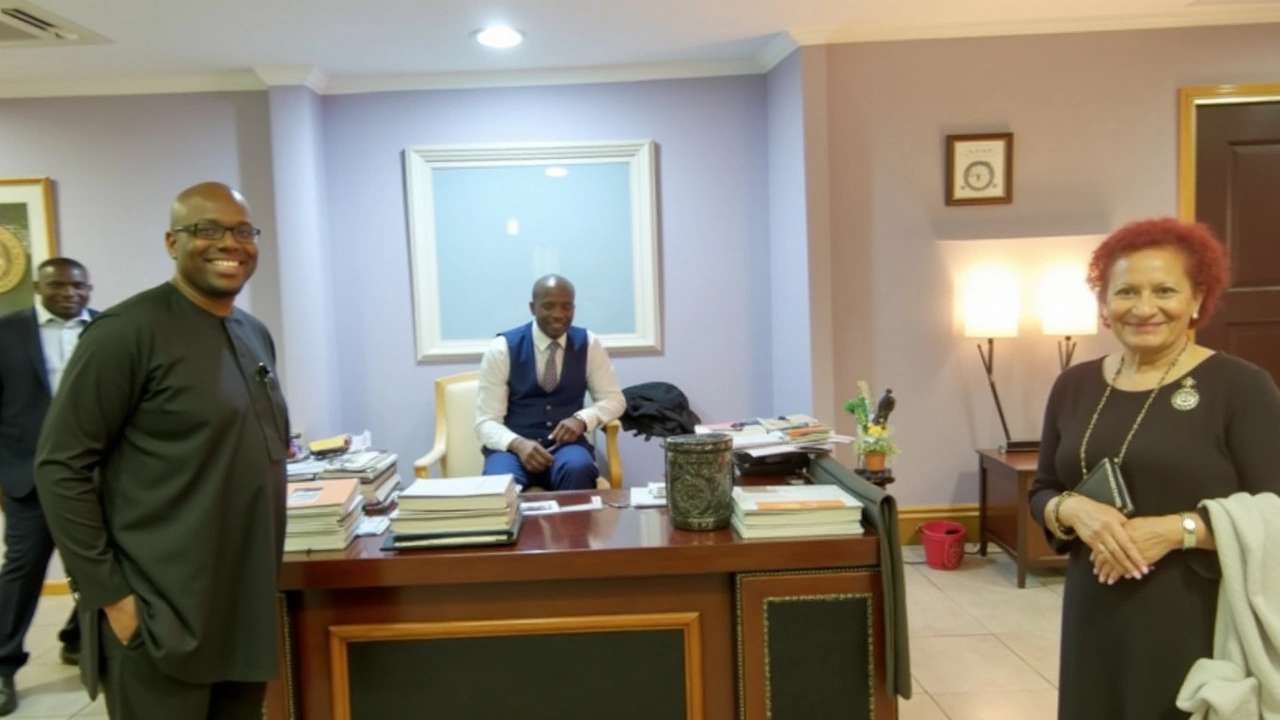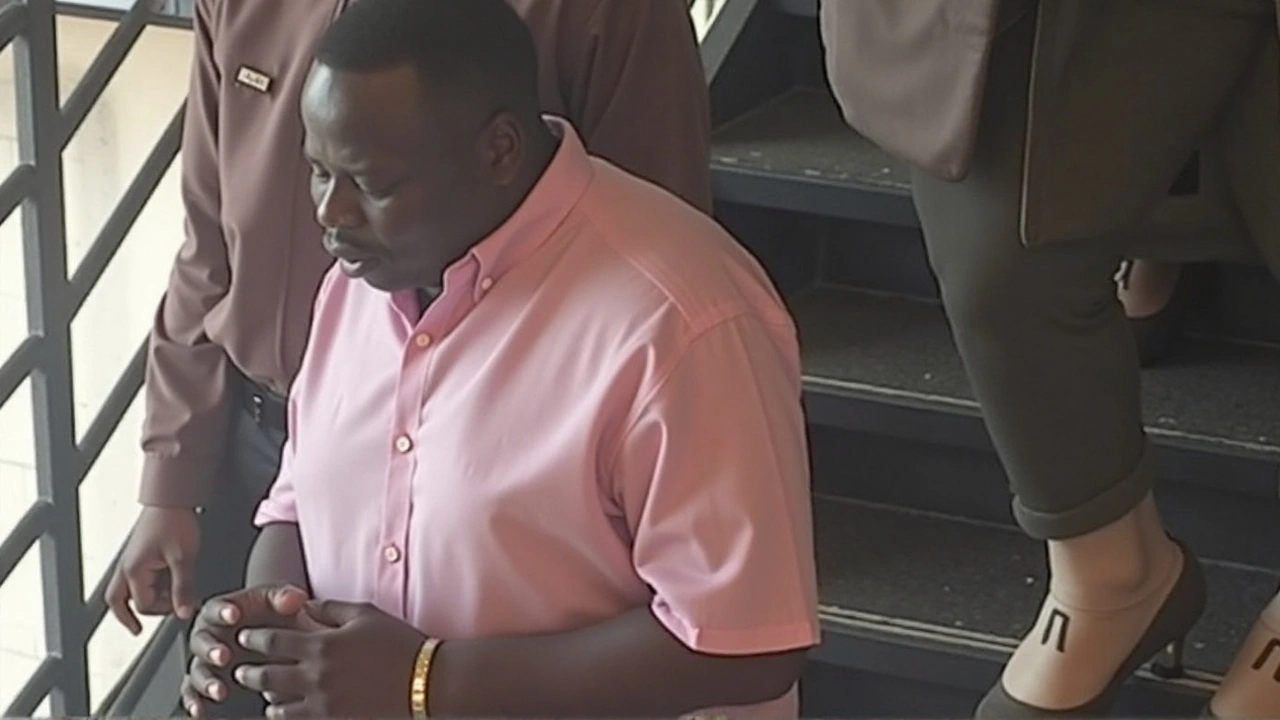In a case that has captivated both legal experts and the public, Dele Farotimi, a well-known human rights lawyer and activist, finds himself mired in a legal quagmire. On the accusation of defamation, he has been remanded in prison custody by the Chief Magistrates' Court in Ado-Ekiti. The controversy began with the allegations brought forth by prominent Senior Advocate of Nigeria, Afe Babalola, who took exception to statements made in Farotimi's book, 'Nigeria and its Criminal Justice System'. This book, published some time ago, challenges various facets of the Nigerian legal structure and posits that it is rife with inconsistencies and systemic injustices.
The Legal Battle and Bail Conditions
On December 9, 2024, Farotimi was granted bail by the Federal High Court in Ado Ekiti, a decision that came with stringent conditions. Bail was set at the significant sum of N50 million, and it was stipulated that the surety must be a resident of Ekiti State, who owns landed property within the court's jurisdiction. Additionally, Farotimi was required to surrender his passport to the authorities, a common practice in cases where there is a perceived risk of flight. Nevertheless, despite meeting bail conditions on paper, Farotimi remains in custody, a matter causing a stir among his supporters and legal practitioners alike.
Countercharges and Their Implications
The initial charges against Farotimi were profound—16 counts of criminal defamation laid out in detail before the magistrate. These charges originated from the petition by Afe Babalola, who felt that Farotimi’s words had crossed the line from critique to defamation. However, in a turn of events, the Inspector-General of Police escalated the issue by filing a fresh case comprising 12 counts of cybercrimes. These new charges were lodged at the Federal High Court in Ado Ekiti, alleging Farotimi's involvement in digital violations connected to the defamation case.
Farotimi, steadfast in his defense, has pleaded not guilty to all charges levied against him. His legal team, bolstered by numerous advocates and activists, argues that these charges represent a broader attempt to stifle dissent and free speech. This argument has gained traction with critics of the Nigerian justice system, who point out systemic failures and the potential for misuse of judicial power as a means of silencing opposing voices.
Public Reaction and Implications for Free Speech
The Farotimi case has rapidly become emblematic of a larger, fiery debate over freedom of expression and the boundaries of defamation in Nigeria. Many civil society organizations and human rights advocates have expressed concern over the charges, suggesting that criminalizing defamation sets a dangerous precedent. They argue that, in a democratic society, critiques of public figures and institutions should be permissible without fear of draconian legal consequences. This case, in particular, has raised the specter of using the powerful tools of both police and the legal system for punitive purposes, a notion that unsettles many in a country with a vibrant, though often contentious, political discourse.
The notion of defamation being addressed as a criminal offense rather than a civil one has sparked significant debate. Many argue that such a stance could deter citizens from voicing criticisms or exposing corruption. These legal maneuvers, they argue, could potentially stifle the sort of robust debate required for a healthy democracy. Farotimi's supporters contend that this trial serves not just as an attack on him personally, but also as a broader assault on free speech across the country.
Next Steps in the Legal Process
The judicial process for Farotimi's case continues to unfold, with the trial scheduled to resume on January 29, 2025. In the coming months, both sides will prepare their arguments for what promises to be a high-profile legal battle. It remains to be seen how the courts will handle these complex issues, and what the broader implications will be for the Nigerian legal system and free speech rights. Dele Farotimi's case is likely to become a pivotal moment in Nigerian jurisprudence, one watched closely by legal scholars, media, and the general public alike.
As this legal drama continues, those advocating for Dele Farotimi urge the public to remain vigilant and engaged. They emphasize that this case transcends the personal stakes for Farotimi, representing instead a significant moment in the ongoing struggle to safeguard civil liberties in Nigeria. It is a case that demands attention, discussion, and, eventually, resolution in a manner that upholds the principles of justice and free expression.

Conclusion
The detention of Dele Farotimi highlights significant challenges within the intersection of Nigeria's legal framework and civil liberties. As the trial approaches, it accentuates the tensions between powerful entities and individual rights activists advocating for systemic reform. The outcome of this case may ultimately shape how defamation laws are perceived and enforced, potentially influencing the boundaries of free speech in Nigeria for years to come.


Cate Shaner
December 11, 2024 AT 04:27Oh, so now defamation is a criminal offense in Nigeria? How quaint. In the US, we treat libel as a civil matter unless it’s inciting violence or national security stuff - which, let’s be real, Farotimi’s book wasn’t. This is textbook judicial overreach dressed up as ‘law and order.’ Afe Babalola’s ego clearly can’t handle being called out for systemic complicity. The fact that they’re using cybercrime charges to piggyback on this? Classic authoritarian playbook. 12 counts? For a book? That’s not justice - that’s performative intimidation.
Thomas Capriola
December 11, 2024 AT 14:35They’re locking up critics. End of story.
Rachael Blandin de Chalain
December 12, 2024 AT 11:17It is imperative to acknowledge the profound implications of criminalizing speech under the guise of defamation, particularly within a jurisdiction where institutional checks and balances remain nascent. The imposition of such stringent bail conditions - including the requirement that sureties be landowners within Ekiti State - suggests not merely procedural rigor, but rather an intentional constriction of due process. This is not law; it is exclusionary spectacle.
Soumya Dave
December 13, 2024 AT 08:25Listen up, everyone - this isn’t just about one lawyer. This is about every single person in Nigeria who’s ever dared to speak truth to power. Dele Farotimi didn’t write a book to be famous - he wrote it because the system is broken and someone had to say it out loud. The fact that they’re throwing 16 counts of defamation and 12 cybercrime charges at him? That’s not legal strategy - that’s fear. Fear of the people waking up. And guess what? We’re waking up. From Lagos to London, from Atlanta to Abuja, people are standing up. This case? It’s not going to bury him - it’s going to make him a legend. Keep the pressure on. Write to your reps. Share this. Don’t let them silence the voice that’s screaming for change. This is our moment - don’t look away.
Chris Schill
December 13, 2024 AT 15:00The bail conditions appear legally valid on paper, but the continued detention despite compliance raises serious procedural concerns. The introduction of cybercrime charges as an escalation, rather than a parallel matter, suggests strategic overreach. In jurisdictions with robust rule-of-law traditions, such multipronged charges would trigger judicial scrutiny for potential abuse of process. The use of property ownership as a surety requirement also introduces socioeconomic bias into the bail mechanism, effectively limiting access to justice based on regional wealth disparities. This case may indeed become a landmark if the court refuses to entertain the conflation of civil critique with criminal intent.